Registration System and Load Cells Provide Insight into Picked Quantities per Employee
Dutch horticulture and tomato growing company, Meer Camp, has recently put a new registration system in place, which gives an accurate insight into the work and performance of employees. Thanks to the system, the employer gets useful information about productivity. Weighing the carts with picked tomatoes is an integral part of the job. This gives a clear count on how many tomatoes have been picked per employee, so that the employee’s pay can be better matched to the work done. The weighing of the carts is done using HBM load cells, which pass the weighed information to the administration.
Meer Camp in Made, Netherlands, is a medium-sized nursery that cultivates different types of tomatoes, such as vine tomatoes. The nursery covers an area of approximately 13 hectares, of which 8 hectares comprise a greenhouse, that produces about 5 million kilos of vine tomatoes annually.
When Meer Camp had to update the existing time registration system in 2016, Director Dirk-Pieter van der Meer got in contact with ProCC from Rotterdam, a young IT company that had just developed a new system. The system records all data about the employees’ work, so that the employer can get an accurate account of the hours worked and the work performed. The system uses NFC (Near Field Communication), which allows wireless exchange of information at a short distance. For the registration of activities, NFC tags are scanned with the help of smartphones, which are placed in the cash register. The mobile phones, in turn, communicate via Wi-Fi stations in the greenhouse with the financial-administrative system at the office, which collects and processes all data.
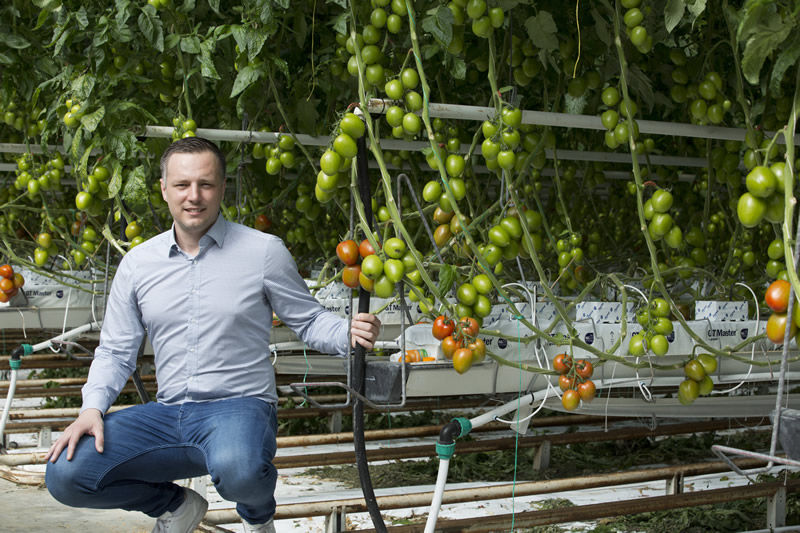
Load Cells Connected to a Smartphone App
The employees of Meer Camp, especially temporary Polish workers, have access to Android smartphones for their work. At the entrance of the greenhouse, the mobile phone is scanned and starts the registration. On the smartphone, an app is installed with a drop-down menu for a series of tasks, such as picking or cutting a sheet of tomatoes. The work can be defined by the employee himself. The employee enters an activity and scans the NFC tag of the row in which he performs the work. If he changes rows or the activity, he should make the change through the app or scan the new NFC tags.
If an employee is picking tomatoes, he also reports that via the app, but he also scans the NFC tag on the cart and, of course, the row he is picking. As soon as the packages are full, they are driven to the logistics department, where they are scanned and weighed on a weighing platform. This happens with load cells and electronics, which are supplied by HBM. The information of the load cells is passed directly to the online system. Because the empty weight of the carts is known, each individual employee can calculate what weight of tomatoes has been picked and how long he took to do it.
“We have provided four load cells of the HLC type, including power introduction and AED electronics, for this project. In addition, we have provided technical support for the development of the application and installation at Meer Camp,”
explains Peter van Spaandonk, Sales Manager for this project at HBM Benelux. He continues, "for us, horticulture is an interesting market, for which many applications are conceivable. For example, we have done a project where the water management in the greenhouse was monitored through the load cells. Load cells are widely used in sorting and weighing fruits and vegetables, and checking the weight of packages. For the proprietor, not only the individual weight of his products is important, but also the yield in relation to the effort put in and raw materials used. In all these cases, HBM can be an interesting provider of innovative solutions.”
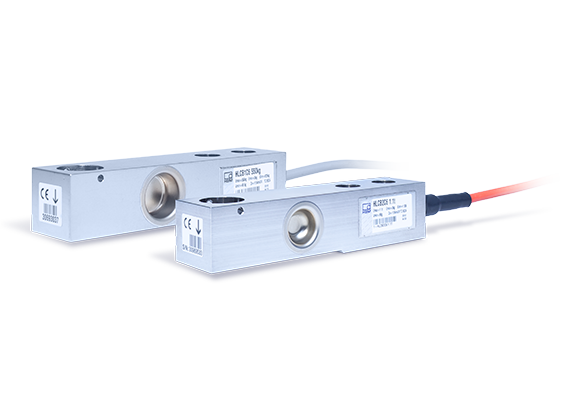
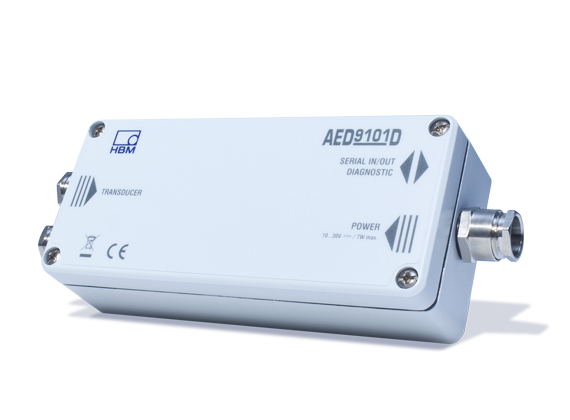
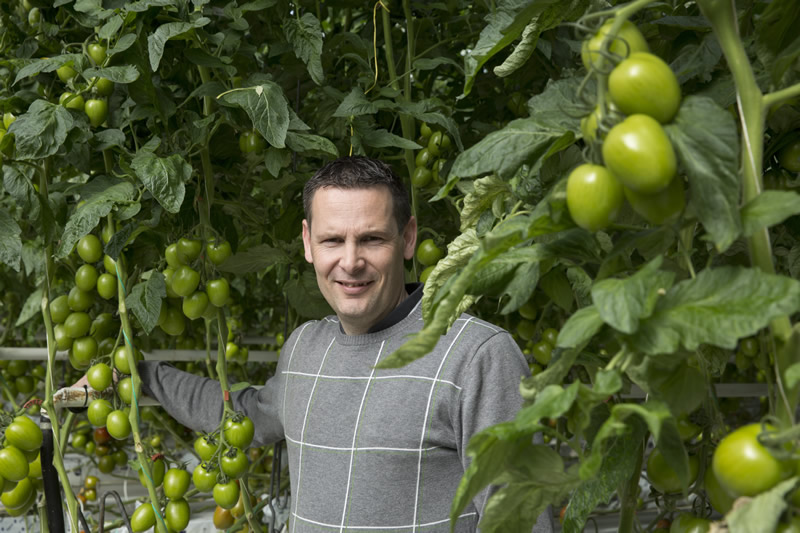
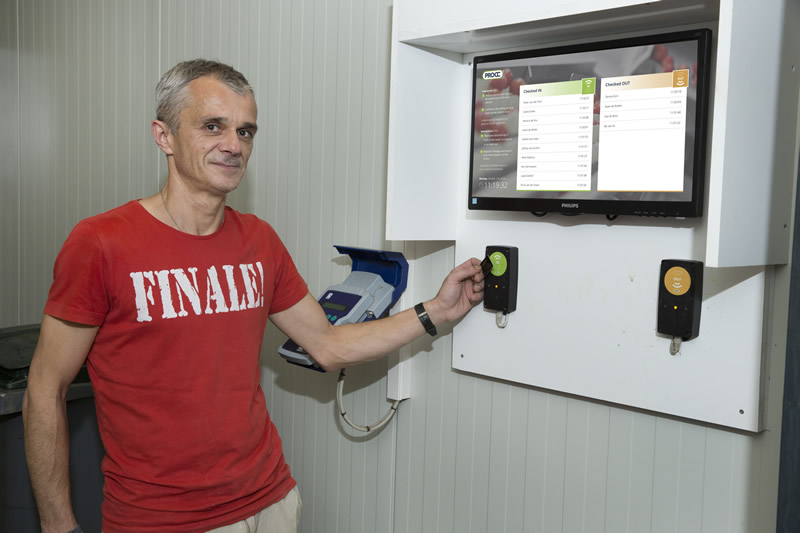
Administrative Link with All the Current Financial Systems
“In addition to employee productivity, the system can record even more data,” says Jeffrey van Uunen, president of ProCC. “Because we easily link with all the current financial systems, like Exact or Unit4, the data can easily be taken over for accounting, salary administration, or the employment agency. For example, the employer can track the number of leaves of absence and sick days in the system and divide the activities for the administration accordingly, and invoicing of completed work and assignments paid on a case-by-case basis. The system is so flexible that all other information can easily be imported. For example, it is possible to report technical issues, diseases, or pests in the greenhouse through the app, which also makes the system a useful tool for other activities. Companies can split complex work into part-time jobs to know which activities consumes the most time. This way you can optimize the workflow.”
Honest Reward by Weighing the Picked Tomatoes
The registration of work offers many benefits to the tomato farmer. He gets a better insight into the time spent by his employees. And by weighing the picked tomatoes, he also knows how much individual employees pick. This information is displayed on a screen in the cafeteria of the nursery. The best performing employees receive a bonus in the form of a significantly higher hourly wage.
“We feel that this way of working encourages some of the other employees to work a bit harder, because nobody wants to be paid less or left unacknowledged,” says Dirk-Pieter van der Meer, Director of Meer Camp.
“This increases our overall productivity. Our aim is to reduce overall labor costs by eight percent in the coming years.”
According to Jeffrey van Uunen, the registration also has benefits for employees because it contributes to a fair reward – “Workers who perform better get a bonus in the form of a higher hourly wage. With our system, you can document it well. You can even use that information for the GRASP audit, which requires companies in agriculture and horticulture to account for their personnel policies and working conditions. This directive arose from the misunderstandings of underpayment and exploitation of foreign staff. With our system, you can prove that you are rewarding your employees.”
Affordable System Also for Smaller Growers
“Our system is very flexible and affordable,”
explains Jeffrey van Uunen. “We focus mainly on small and medium-sized growers who still hand over or outsource part of the administration to an external accounting company. Our customers do not pay tens of thousands of euros for a license fee, but simply a fixed amount per hectare. For Meer Camp, the total cost of purchasing and deploying our system was lower than the current system update. The system is also affordable for smaller growers because the costs are related to the size of the company and the total payroll. Additionally, we can add a variety of other registrations very flexibly, allowing smaller breeders to take advantage of relevant information and data about their company, staff, and cultivation.”
On the hardware, ProCC does not have anything to earn. The system is simple and runs on normal Android smartphones and affordable Wi-Fi interfaces. HBM, the supplier of load cells for the weighing platform, is a specialist in weighing technology, which has well-earned its traces in the food industry and horticulture. ProCC has now implemented the solution in four growers, which together have about 50 hectares of greenhouses, but Van Uunen hopes that the number of plants can grow rapidly to 150 hectares, thanks to collaboration with other plant companies.